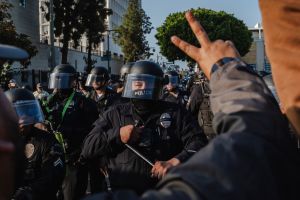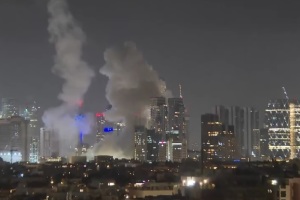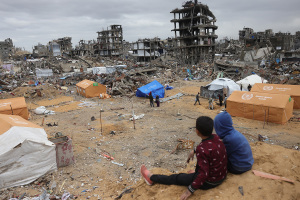Internet Resurrected in Libya Following Rebel Advance Into Tripoli
After months of blackouts and almost total outages, the internet is the latest thing to emerge from Libya’s rebel advancement on Tripoli.
Internet access in the country went down and then became difficult to access following the February demonstrations against Muammar Gaddafi’s leadership. Those demonstrations led to NATO becoming involved in the country on the grounds of the United Nations Security Council Resolution 1973.
The resolution was adopted on March 17 and authorized member states and regional organizations to take “all necessary measures” to protect civilians in Libya.
Rebels began their robust advancement into Tripoli last week, and Sunday marked the day rebels finally entered the streets of the capital. Rebels celebrated waving their flags in the streets of Tripoli and Libyans across the world joined the celebration of the looming fall of the 41-year leader.
Part of yesterday’s celebration consisted of Libyans using the internet, which finally managed to come under the control of the rebels; with many expressing their enthusiasm and happiness for the rebel advancement.
Although fewer than 6 percent of people are internet users in Libya, people all over the country were typing messages such as “Libya is free” and “The tyranny is over” on social media networking sites such as Facebook and Twitter.
The National Front for the Salvation of Libya eagerly used their new found access to the internet, tweeting early Monday morning, “Welcome to all our brothers & sisters from inside Tripoli on Twitter… Internet returns to them first time in a long time! #Feb17#Libya.”
CNN’s Doug Gross believes that the newfound access to the Internet can be seen as a “signal of emerging freedom almost as strong as the rebel forces advancing on Gaddafi’s last stronghold.”
The breakthrough, although exciting, may not mean a full and secure internet for users across Libya as rebel forces continue to fight Gaddafi forces in Tripoli and the dictator is not quite toppled yet.
Furthermore, fears remain that the strongman may not be defeated so soon. One NATO official, who spoke on the condition of anonymity, told the Washington Post, “We cannot drop our guard when we know Gaddafi has done things even in full retreat.”
Thus, what happens to the internet in Libya is likely to serve as a signal as to what is happening on ground in the country.




























